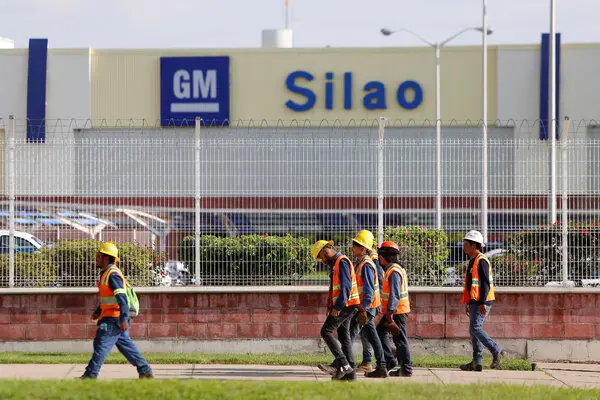Nikita Rumsey is a student at Harvard Law School.
In the wake of OSHA’s withdrawal of its shot-or-test rule for large employers after the Supreme Court blocked its enforcement, attention has shifted to OSHA’s Covid-19 emergency temporary standard (ETS) covering the healthcare industry. On December 27, 2021, OSHA withdrew its ETS that was designed to protect healthcare workers, ostensibly because OSHA failed to meet a statutory six-month deadline to issue a permanent rule for the healthcare industry to replace the temporary one. Thereafter, in early January a coalition of unions and labor groups filed suit asking the D.C. Circuit to compel OSHA to reinstate its Covid-19 emergency temporary standard for healthcare workers. As Bloomberg reported, National Nurses United, the American Federation of Teachers, and other labor groups including the AFL-CIO have since filed a brief in the case detailing their argument that OSHA’s decision to rescind its emergency standard for healthcare workers violates federal law. Specifically, the unions note that OSHA found that the emergency temporary standard was “necessary” to protect healthcare workers from “grave danger” when it decided to issue the ETS in June, yet the agency has since withdrawn the ETS without disclaiming those findings or suggesting that they are no longer valid. As a result, the unions argue that OSHA has failed to fulfill its mandatory duty under the OSHAct to protect such workers from the “grave danger” posed by Covid-19 by failing to leave the ETS in place until it is superseded by a permanent standard.
Meanwhile, Labor Notes reported extensively on a landmark upcoming election at a massive General Motors plant in central Mexico, where 6,500 workers will decide amongst four unions competing to represent them. As Labor Notes stated, a victory by independent union SINTTIA (the National Auto Workers Union) “would be a big step toward breaking the stranglehold of the employer-friendly unions that have long dominated Mexico’s labor scene.” Last year, the Silao workers—whose factory makes the Chevy Silverado and GMC Sierra pick-up trucks along with a variety of V8 engines and transmissions—voted to invalidate their existing contract bargained by a corrupt local of the Confederation of Mexican Labor (CTM), and now face a vote between SINTTIA and three other unions, at least two of which have CTM ties. SINTTIA grew out of last year’s campaign to oust CTM as well as another campaign to reinstate a group of workers who had been fired after refusing overtime in solidarity with striking U.S. GM workers in 2019. In Mexico, labor law reform passed in 2019 requires unions to hold secret-ballot votes to validate all existing CBAs by mid 2023, which was designed to help foster union democracy in a country where, by one estimate, 80-85% of union contracts are “protection contracts” signed between employers like GM and corrupt officials without any worker input. Such arrangements and the scarcity of genuine unions have helped keep Mexican wages down—one estimate found that Mexican workers earn just one-tenth of their U.S. counterparts.
In other news, Florida Politics reported on what critics are calling a “union-busting” measure currently working its way through the Florida state legislature. The bills (SB 1458 and HB 1197) would require public employee union members to sign a member authorization attesting that their decision to join was voluntary and that they acknowledge their right not to join a union. In addition, the bills would restrict public-employee unions from deducting union dues from their members’ salaries. Instead, such employees may pay their dues directly to the union that has been certified as their bargaining agent. Tellingly, the bills expressly exempt unions representing police officers, firefighters, correctional officers, and correctional probation officers from its stringent requirements. Democratic lawmakers opposing the measure have claimed that these categories of exempted unions are male-dominated fields that, politically, skew toward Republicans, and some have even argued that this discrepancy may open up the legislation to litigation on equal protection grounds.






Daily News & Commentary
Start your day with our roundup of the latest labor developments. See all
January 19
Department of Education pauses wage garnishment; Valero Energy announces layoffs; Labor Department wins back wages for healthcare workers.
January 18
Met Museum workers unionize; a new report reveals a $0.76 average tip for gig workers in NYC; and U.S. workers receive the smallest share of capital since 1947.
January 16
The NLRB publishes its first decision since regaining a quorum; Minneapolis labor unions call for a general strike in response to the ICE killing of Renee Good; federal workers rally in DC to show support for the Protecting America’s Workforce Act.
January 15
New investigation into the Secretary of Labor; New Jersey bill to protect child content creators; NIOSH reinstates hundreds of employees.
January 14
The Supreme Court will not review its opt-in test in ADEA cases in an age discrimination and federal wage law violation case; the Fifth Circuit rules that a jury will determine whether Enterprise Products unfairly terminated a Black truck driver; and an employee at Berry Global Inc. will receive a trial after being fired for requesting medical leave for a disability-related injury.
January 13
15,000 New York City nurses go on strike; First Circuit rules against ferry employees challenging a COVID-19 vaccine mandate; New York lawmakers propose amendments to Trapped at Work Act.